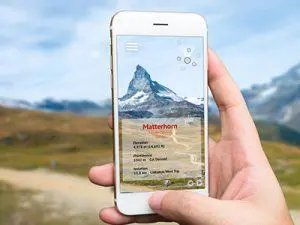Hoteliers and travel agents have seen hospitality industry trends change and grow over time. But the presence of technology that appeals to millennial travelers—both established and up-and-coming tech—is changing the industry like never before.
With millennial travel accounting for 80% of online bookings, transitioning your business efforts to web and mobile is key to staying competitive in the hospitality landscape of today—and tomorrow. We offer a few suggestions on how to maximize your presence.
A Picture’s Worth a Thousand Ads
Wendy Burk, CEO of travel management company Cadence, revealed in a recent Forbes article exactly how Instagram has influenced travel since its debut, especially among millennial travelers. “Instagram has made wanderlust contagious,” she said. “There are currently 300 million posts tagged with the word ‘travel.’ That sheer mass can turn an unveiled destination into a tourist hotspot.”
 The potential power of Instagram is not lost on industry professionals. “Hotels are likely observing [traveler] activities hoping to wow them in exchange for their loyalty,” Burk states. “And travel advisors are checking in to to find peace of mind that their client is having a share-worthy experience.” Both activities are consistently attracting new customers and leading to additional conversions (and revenue).
The potential power of Instagram is not lost on industry professionals. “Hotels are likely observing [traveler] activities hoping to wow them in exchange for their loyalty,” Burk states. “And travel advisors are checking in to to find peace of mind that their client is having a share-worthy experience.” Both activities are consistently attracting new customers and leading to additional conversions (and revenue).
The ability to grow your hospitality business via social media is more accessible than ever, and the opportunity to capitalize on user-generated content is something that needs to remain top of mind. A well-thought-out social media plan is the doorway to promote your brand and expand your presence, generating cost-effective traffic for your company.
Get Ahead of Your Audience With Facebook Trip Consideration
Facebook has clearly taken the time (and money) to invest in user data. This rich information allows hotels and travel agencies to market to consumers who have shown intent to book a trip in the future, therefore, allowing the hospitality market to get ahead of the sale.
They call this program Facebook Trip Consideration, and it certainly shows promise for the entire hospitality world. Travel agents can promote themselves as a one-stop shop for the perfect vacation, and hotel marketing or revenue management teams can influence travelers to stay at their property.
Millennial Travel is Web- and Mobile-Focused
More and more under-30 travelers are turning to online travel agencies (OTAs) to book flights. According to Tnooz, who referenced the latest travel trends survey from WYSE Travel Confederation, those under 30 book 40% of their travel and 47% of their accomodations online. As mobile booking becomes more ubiquitous, we can expect that number to continue rising.
Hotels must rely on their revenue management teams to continuously optimize OTA channels in an effort to increase bookings and revenue, but the overall health of a hotel’s finances also relies on a trusted relationship with OTAs—in fact, all travel agency partners. A speedy and complete commissions payment process can not only solidify hotels as a trusted industry partner, but outsourcing the streamlining of payments can cut administrative costs and help revenue management teams find more time to refine their direct and OTA pricing strategies.
Contrary to popular belief, independent travel agencies are not at odds with OTAs. The benefits of having a personal travel agent have been well documented; travelers get tailored itineraries and best-in-class customer service at low rates, and OTAs offer option and ease of use for younger generations that were raised on mobile. Agencies simply need to step up their digital game, as travel bookers can no longer expect to be found by younger travelers in the Yellow Pages. With more millennials using mobile to make their purchasing decisions, now is the time for independent travel agencies to bolster their online presence and adopt a mobile-first mindset when it comes to advertising and website efforts. Independent travel agencies can remain competitive by highlighting what they bring to the table—a tailored travel itinerary at the best possible price point—on a mobile-responsive, updated website. Optimize your exposure with social media, and you can expect a positive shift in traffic.
Get Ready for a Dose of Reality
Hotels and travel agencies are always on the lookout for more powerful ways to sell their higher-end experiences. Two technologies already making an impact, according to TravelWeekly, are augmented reality (AR) and virtual reality (VR). Both technologies have the capability to support hospitality businesses by giving potential customers a full 360 degree view of accommodations, views and local activities. The possibilities are almost endless, but here are some suggestions:
-
- Hotels can let travelers walk through a suite.
- Event planners can get a better feel for a hotel’s different ballroom offerings.
- Travel agencies can set up virtual showrooms, allowing travelers to enter a castle, raft down a river or experience a museum exhibit.
 Use of these technologies doesn’t mean putting people aside, of course. As Elena Mogos, Associate Analyst for Digital Travel & Tourism at GlobalData, says, “Travel still revolves around meaningful human interactions.” But in today’s competitive environment, it’s crucial to find the right balance between technology and humanity.
Use of these technologies doesn’t mean putting people aside, of course. As Elena Mogos, Associate Analyst for Digital Travel & Tourism at GlobalData, says, “Travel still revolves around meaningful human interactions.” But in today’s competitive environment, it’s crucial to find the right balance between technology and humanity.
TravelWeekly points out that the past few years have seen an increase in AR or VR popularity among travel and tourism companies, and the trend is poised to continue. While both technologies can be used for content marketing, they may prove more valuable at the point of sale. The technologies can be seen as the icing on the transparent millennial travel booking cake.
As noted in an Augment.com article, millennials have a very short span of attention span, so it’s important to engage them and provide the best end-to-end customer experience possible—one that, hopefully, lasts forever. AR, in particular, creates great interactive environments between buyers and sellers (travelers and hospitality providers) and establishes a lasting emotional connection.
Behind-the-Scenes Technology That Makes an Impact
While customer-facing technology can bolster business over time, immediate steps can be taken behind the scenes allowing both hotels and travel agencies to reduce administrative overhead, increase booking and streamline commissions payments.
Onyx CenterSource has the products and resources to do all of the above. As the only B2B hospitality payment provider working with both hotels and travel agencies, we’ve optimized the hospitality payments ecosystem to be mutually beneficial for both parties.